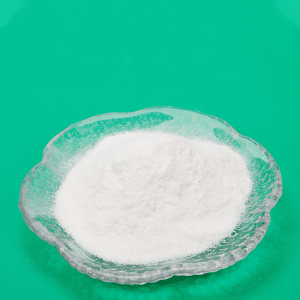L-lysine hydrochloride, an essential amino acid lysine derivative, holds significant importance in nutrition, health, and therapeutic applications. Its unique biochemical properties and physiological roles make it indispensable for protein synthesis, collagen formation, immune function, and more. This article delves into the biochemical foundations, physiological functions, dietary sources, and therapeutic uses of L-Lysine hydrochloride, highlighting its diverse applications in clinical settings and everyday wellness.

Biochemical Foundations
L-lysine hydrochloride, chemically known as 2,6-diaminohexanoic acid hydrochloride, is a salt form of L-lysine. Lysine is an essential amino acid, meaning the human body cannot synthesize it, and it must be obtained through dietary sources or supplementation. Lysine is crucial for protein synthesis, collagen formation, and overall health.
Synthesis and Dietary Sources
Lysine is synthesized in plants and microorganisms through enzymatic pathways involving aspartic acid. However, humans and animals rely on dietary intake to meet lysine requirements. Good dietary sources of lysine include protein-rich foods such as meat (especially red meat, poultry, and pork), fish, dairy products (mainly cheese and yogurt), eggs, legumes (such as beans and lentils), and certain nuts and seeds.
L-lysine hydrochloride is a stable and bioavailable form of lysine commonly used in supplements and fortified foods. It is readily absorbed in the gastrointestinal tract and utilized by the body for various physiological functions, making it a valuable nutrient in preventive health and therapeutic interventions.
Physiological Roles
Protein Synthesis and Tissue Repair
As an essential amino acid, lysine is critical in protein synthesis and cellular growth. Lysine residues are integral to many proteins, contributing to their structural integrity and enzymatic activity. Lysine is particularly important for collagen synthesis, the primary structural protein in connective tissues such as skin, tendons, and bones. Collagen formation is essential for wound healing, tissue repair, and skin elasticity and strength.
Supplemental L-lysine hydrochloride is often recommended for recovering from injuries, surgeries, or burns to support tissue regeneration and accelerate healing processes. These supplements enhance collagen production and promote optimal tissue repair mechanisms by providing an adequate supply of lysine.
Immune Function and Antiviral Activity
Lysine supports immune function and enhances the body’s defense mechanisms against infections. Lysine competes with another amino acid, arginine, for cellular uptake. High lysine levels can suppress arginine uptake, which is necessary to replicate certain viruses, including herpes simplex (HSV). This competitive inhibition is the basis for using lysine supplementation in managing HSV infections, particularly cold sores and genital herpes.
Research suggests that maintaining a balanced lysine-to-arginine ratio through dietary adjustments or supplementation may reduce the frequency and severity of HSV outbreaks. L-lysine hydrochloride supplements are widely used to provide symptomatic relief and potentially limit viral replication in affected individuals.
Bone Health and Calcium Absorption
Lysine is involved in calcium absorption and utilization within the body, contributing to bone health and skeletal development. Lysine enhances the intestinal absorption of calcium ions and facilitates their incorporation into bone matrix proteins, thereby promoting bone mineralization and density.
Studies have shown that lysine supplementation may benefit individuals at risk of osteoporosis or bone fractures by enhancing calcium retention and supporting optimal bone metabolism. Combined with adequate vitamin D intake, lysine maintains skeletal integrity and reduces the risk of bone-related disorders associated with aging or nutritional deficiencies.
Therapeutic Applications
The therapeutic applications of L-Lysine hydrochloride extend beyond its foundational roles in protein synthesis and immune function, encompassing a range of health conditions and clinical interventions.
Herpes Simplex Virus (HSV) Infections
One of the most recognized therapeutic uses of L-Lysine hydrochloride is managing HSV infections, particularly cold sores (oral herpes) and genital herpes. Lysine’s ability to inhibit arginine uptake by HSV-infected cells disrupts viral replication and may reduce the frequency, duration, and severity of recurrent outbreaks.
Clinical studies and anecdotal evidence suggest that oral lysine supplementation, either as L-Lysine hydrochloride tablets or in dietary form, can provide symptomatic relief and support healing herpetic lesions. Regular lysine intake may also help prevent the onset of HSV outbreaks in susceptible individuals, offering a non-pharmaceutical option for managing chronic viral infections.
Anxiety and Stress Management
Lysine supplementation has shown promise in mitigating symptoms of anxiety and stress, possibly due to its role in serotonin regulation and neurotransmitter balance. Lysine is a precursor for serotonin, a neurotransmitter involved in mood regulation, sleep-wake cycles, and emotional well-being.
By promoting serotonin synthesis, lysine may modulate brain function and enhance resilience to stressors. Preliminary research suggests that lysine supplementation, alongside conventional treatments or lifestyle modifications, could benefit individuals experiencing anxiety disorders or stress-related symptoms. Further clinical trials are needed to validate these findings and elucidate lysine’s mechanisms of action in mental health contexts.
Cardiovascular Health and Lipid Metabolism
Emerging evidence indicates that lysine may contribute to cardiovascular health by influencing lipid metabolism and reducing the risk of cardiovascular diseases (CVD). Lysine synthesizes carnitine, a compound essential for transporting fatty acids into mitochondria for energy production.
Moreover, lysine’s role in maintaining vascular integrity and endothelial function supports healthy blood circulation and cardiovascular function. Dietary interventions incorporating L-lysine hydrochloride may help manage lipid profiles, reduce cholesterol levels, and mitigate the progression of atherosclerosis, thereby promoting cardiovascular wellness and reducing CVD risk factors.
Conclusion
L-lysine hydrochloride epitomizes the integral role of amino acids in human nutrition, health maintenance, and therapeutic interventions. From its essential functions in protein synthesis and tissue repair to its immunomodulatory effects and therapeutic applications in managing viral infections, lysine underscores its versatility and significance in optimizing physiological function and well-being.
As scientific research advances and clinical insights expand, L-Lysine hydrochloride offers promising avenues for addressing various health conditions, supporting immune resilience, and enhancing overall quality of life. Whether as a dietary supplement to augment lysine intake or as a targeted therapy for managing specific health concerns, lysine exemplifies the potential of nutritional biochemistry in promoting holistic health outcomes.
Embracing the multifaceted contributions of L-Lysine hydrochloride encourages ongoing exploration, innovation, and personalized approaches to nutrition and wellness. By harnessing lysine’s biochemical prowess and therapeutic benefits, healthcare practitioners and individuals can navigate toward optimized health, resilience, and vitality in today’s dynamic healthcare landscape.
